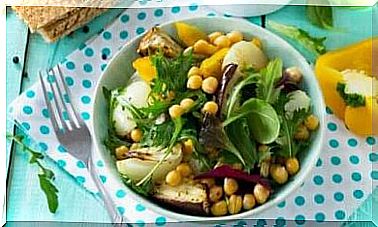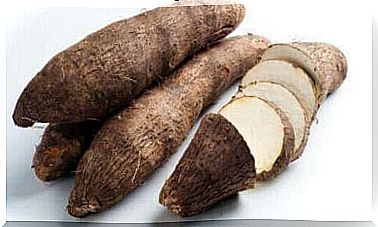Controlling Psoriasis Through Your Diet
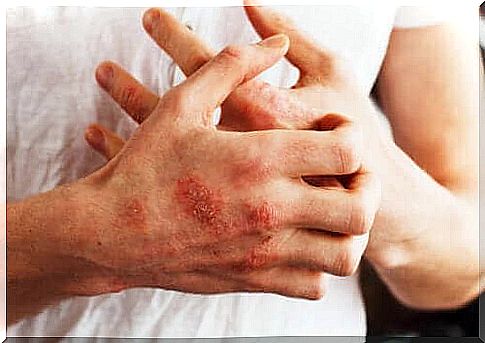
Psoriasis is a skin condition that affects about 2% of the entire population. The main symptom of this condition is irritated and red skin with whitish scales. In this article, we’ll look at how you can control psoriasis symptoms.
Changing your eating habits will not cure psoriasis. However, it can help reduce symptoms. Read on to find out which foods can help minimize psoriasis symptoms and which foods can prevent them from worsening.
How do you fight psoriasis and its relationship with food?
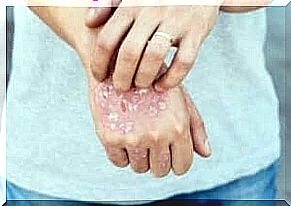
In May 2017, a study in Dermatologic Therap y analyzed the diets of more than 1,200 members of the National Psoriasis Foundation . The results showed that certain foods seem to aggravate psoriasis, while others reduce symptoms.
Overall, most people who participated in the study adhered to the following diet:
- gluten free
- low to no alcohol consumption
- increased consumption of vegetables and vitamin D
At the same time, a large percentage of participants claimed to follow certain diets to control psoriasis with successful results. In general, according to them, some of the most frequently mentioned diets were:
- vegan diet
- paleo diet
- mediterranean diet
- vegetarian diet
- gluten free diet
- low-carb/high-protein diet
Recommended Foods to Help Fight Psoriasis
Below we have included a list of foods based on the nutritional advice published in the journal JAMA Dermatology.
1. Fruits and Vegetables

Primarily, the following foods provide essential nutrients to help control psoriasis, such as:
- vitamin A
- antioxidants
- zinc
- selenium
- magnesium
Below are some fruits and vegetables that you should also include in your daily diet:
- roots
- paprika
- pumpkin
- Spinach
- Broccoli
- avocado
- apricots
- mango
- raspberries
- blueberries
- blackberries
2. Omega-3 to Fight Psoriasis
Next, omega-3 fatty acids are known for their anti-inflammatory properties. Overall, these are great foods to include in your diet. Some foods rich in these fatty acids include:
- fatty fish, such as salmon, sardines, herring and mackerel
- seafood
- nuts and seeds
- legumes such as soybeans and chickpeas
3. Whole Wheat Products
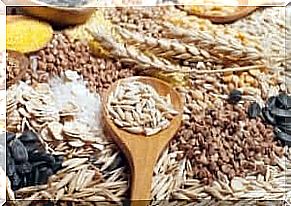
Eating fiber and probiotics is extremely important. If you want your body to properly absorb the nutrients, you have to ensure good intestinal health.
That’s why we recommend eating whole grains and cutting back on foods made with regular flour. Whole grain products have a higher fiber content and are also a great source of minerals.
Try adding products such as rice, wheat, and oatmeal, along with other similar whole grains, to your daily diet. In addition, you can also include kefir and yogurt in your diet to increase your consumption of probiotics.
4. Vitamin D can help control psoriasis.
In addition, some studies show that including vitamin D can help manage inflammatory diseases such as psoriasis. Think of including foods such as oily fish, eggs and sunflower seeds.
Foods to Avoid
Before we get started, it’s important to note that most of the foods below don’t need to be completely avoided.
For some of the foods, it is only advisable to reduce your consumption or be more aware of your consumption of the foods listed below. Let’s take a closer look at this.
1. Alcohol

There is no conclusive data to support the complete avoidance of alcohol for people suffering from psoriasis.
However, some research suggests that treatments for psoriasis are less effective when combined with alcohol. Therefore, moderate consumption of alcohol is usually recommended. If any of your medications contain methotrexate or acitretin, you probably shouldn’t drink alcohol at all.
2. Processed Foods and Refined Sugars
Psoriasis is an inflammatory disease. To help fight psoriasis, it is therefore recommended to stop consuming processed foods with a low nutritional value, such as margarine, instant soup, soft drinks and sauces.
3. Red meat
Specialists usually advise people with psoriasis to eat less red meat and also to avoid fatty cuts of meat. This is because these meats can increase the number of cytokines, which worsens the symptoms of psoriasis.
4. Coffee and milk
Like red meat, these two drinks increase levels of cytokines, the cellular proteins responsible for regulating inflammation. Therefore, it is best to abstain from drinking coffee and milk regularly.
5. Can gluten-free diets also help control psoriasis?
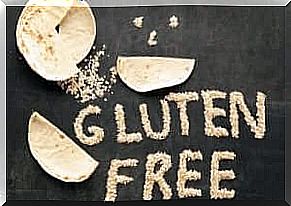
Certain studies suggest that much of the population who suffers from psoriasis may also be allergic to gluten. While some research suggests there is a correlation between the two, there are conflicting opinions within the scientific and medical field.
While some specialists like to eliminate gluten from the diet as a preventative step, some research supports that if the presence of celiac disease is not confirmed, it could be counterproductive. So consult your doctor to discuss whether a gluten-free diet would benefit you.
6. Fats
A pro-inflammatory diet, or one that includes regular consumption of saturated and trans fats, can make psoriasis symptoms worse. Therefore, a low consumption of fats is recommended.
Conclusions
So your diet cannot cure psoriasis. However, it can help relieve the symptoms. Therefore, consult your doctor or nutritionist about the best dietary changes that can help you manage this condition.
Finally, the dietary changes mentioned are guidelines for a balanced and varied diet. A balanced and varied diet can be enhanced with exercise and healthy habits to control the symptoms of psoriasis, as well as improve your health and quality of life.


